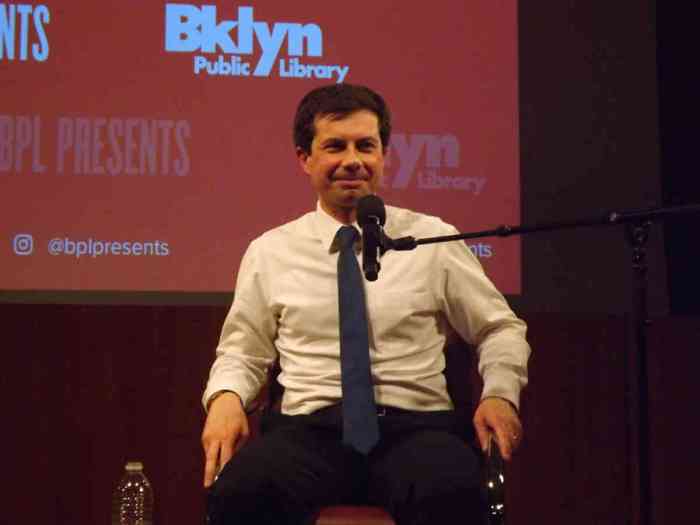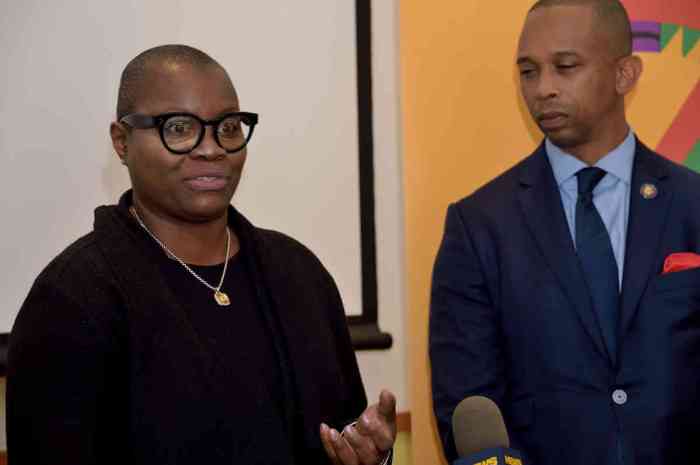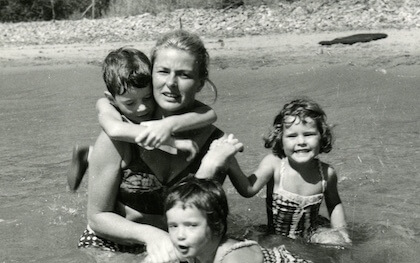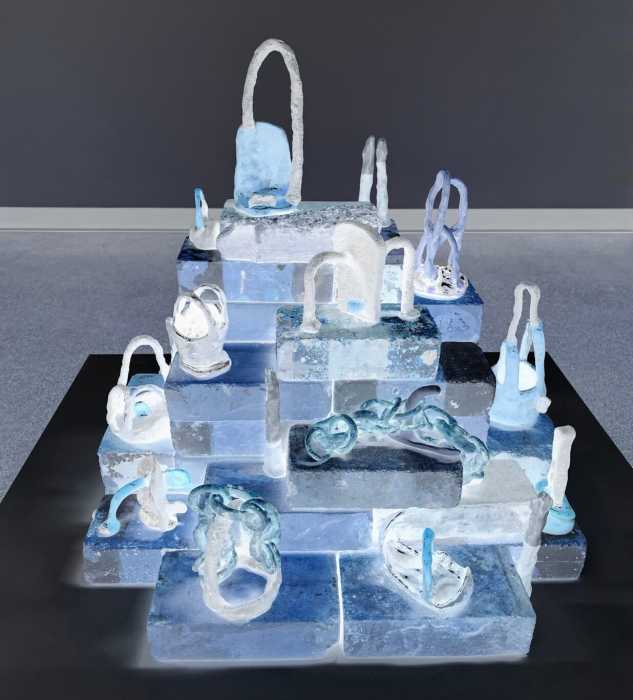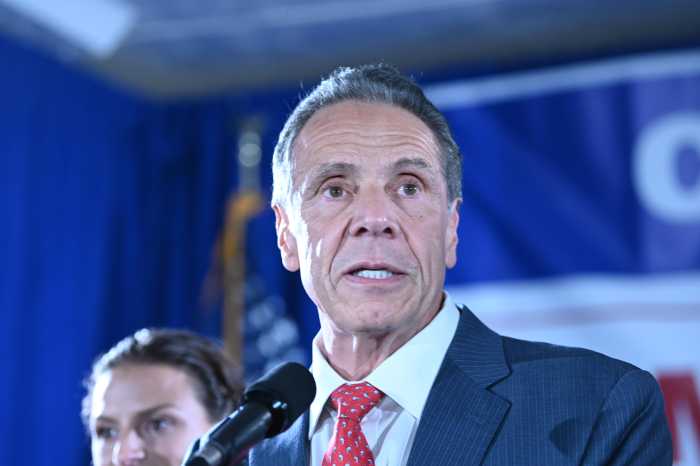Abdellah Taïa, a Moroccan-born author who now lives and works prolifically in Paris, appears at the Brooklyn Public Library on April 10. | COURTESY: ABDELLAH TAÏA
Abdellah Taïa, the gay Moroccan writer who lives in Paris, will be in Brooklyn on April 10 to do a reading at the main branch of the Public Library at Grand Army Plaza.
The event, co-sponsored by the Belladonna* Collaborative and the Asian American Writers’ Workshop with additional support from Seven Stories Press, will feature a post-reading conversation with poet, writer, and scholar Meena Alexander.
A new Belladonna* chapbook authored by Taïa will be available the night of the event, along with copies of his novel “Infidels” (Seven Stories Press, 2016.)
Taïa, 44, famously came out during an interview for a magazine in a coffee shop in Casablanca. Now, writing in French in Paris, he has authored eight books and adapted one into an award-winning film, “L’Armée du Salut” (“Salvation Army”). He has just completed work on a play about three aging prostitutes on the run in Paris.
Author Abdellah Taïa emerges from his writing to engage the world
Gay City News spoke to Taïa recently by phone from his Paris apartment.
CHRISTOPHER MURRAY: What, besides the reading, do you plan to do in New York while you are here?
ABDELLAH TAÏA: Just to be in New York is terrific. For me, New York and Cairo are the most exciting places I’ve ever been to. Morocco is my place, since I come from there, but besides there, New York is sort of the American Cairo for me. The energy in New York is intense, one feels very deeply the artistic energy of the city. I stay with a friend and her family in Harlem when I come and I love that neighborhood. My dream is to live in New York for a year or two at some point.
CM: What’s it like to see Americans freaking out about our president?
AT: It’s not just America. There are problems right now with countries in the West in general. The extreme right is coming up again in France. We see the same thing in Holland and Denmark; in Germany, the extreme right is back in the Parliament again. It seems like today that countries in the West are feeling the tensions that indicate a need for a redefinition of democracy. The right are not only against foreigners or immigrants, but some established values, like being against women. This huge strain of reactionary feeling is not focused just on Donald Trump. We should be thinking about how did these things happen? We need to think more in global terms and not just about our own country. We tend to think so much in terms of our own country, our own lives. It’s so important to reach out from the isolation of our own problems. Gay people, whether Muslim or Christian or from here or there, know the loneliness of isolation very well.
CM: As a writer who is a member of an oppressed minority you are able to reach for parallels with others’ experiences that may in fact be quite different?
AT: When I write, I return to this lonely corner and I write from there, but I try very hard then to come out of that corner and to talk to the world about that lonely, sad place. Yes, I suffered, was raped and very lonely for many years, but now I have other choices as a writer and as a human being because I don’t want to live my life alone. Now I can go back to that group and force the group to listen to me whether they like to or not.
CM: It’s tough when you speak your truth and others don’t accept it. You’ve said your family screamed and shouted when you came out, but you said you’d never apologize for being gay or having come out. This is why allies are so important, because there are many times when others will reject our truths.
AT: A potential tragedy of being gay is having the courage to come out and live as who you are but still being rejected. The world still asks a great deal, maybe too much, from gay people. We must not only survive, but live our truth and tolerate those who reject us. I’m not talking about me now, but about the little gay boy or girl living somewhere in America or Morocco. That’s why it’s important for people like you and me to speak about the lives people live and not just from a theoretical perspective.
CM: How are gay rights developing now in Morocco?
AT: Since about 2004 or 2005, the journalists in Morocco have really changed their minds about gay people and have been leading the cultural shifts in attitudes that are making a big difference. They stopped referring to gays using pejorative terms. There is now a word, mithli, that refers to gays without any of the connotations of “pervert” or anything like that. It is a neutral word, neither condoning nor condemning. That is an important change. I think the real problem with gays in the Arab Muslim world is political. The people who run the Arab countries don’t want to change the laws about homosexuals. Of course they will always say the societies are not ready, the family values must be kept intact. They always use the same rhetoric we are all so used to. In the last three years there have been several lynchings of gay people in Morocco with the videos then posted online. So there is of course still much anti-gay feeling. But I do think it is essentially a political problem now more than a cultural one.
CM: What’s new in your writing?
AT: I am working right now on a play called “One Day I Will Live.” I just finished it, actually. It’s about a group of transgender immigrants in Paris. I am still raising money to begin “The Treasure,” my new film. Next year another of my novels will be translated into English and published by Seven Stories Press.
ABDELLAH TAÏA + MEENA ALEXANDER | Brooklyn Public Library, Grand Army Plaza | Apr. 10 at 7:30 p.m. | Free, but reservations suggested | https://bit.ly/2G5xSZh



